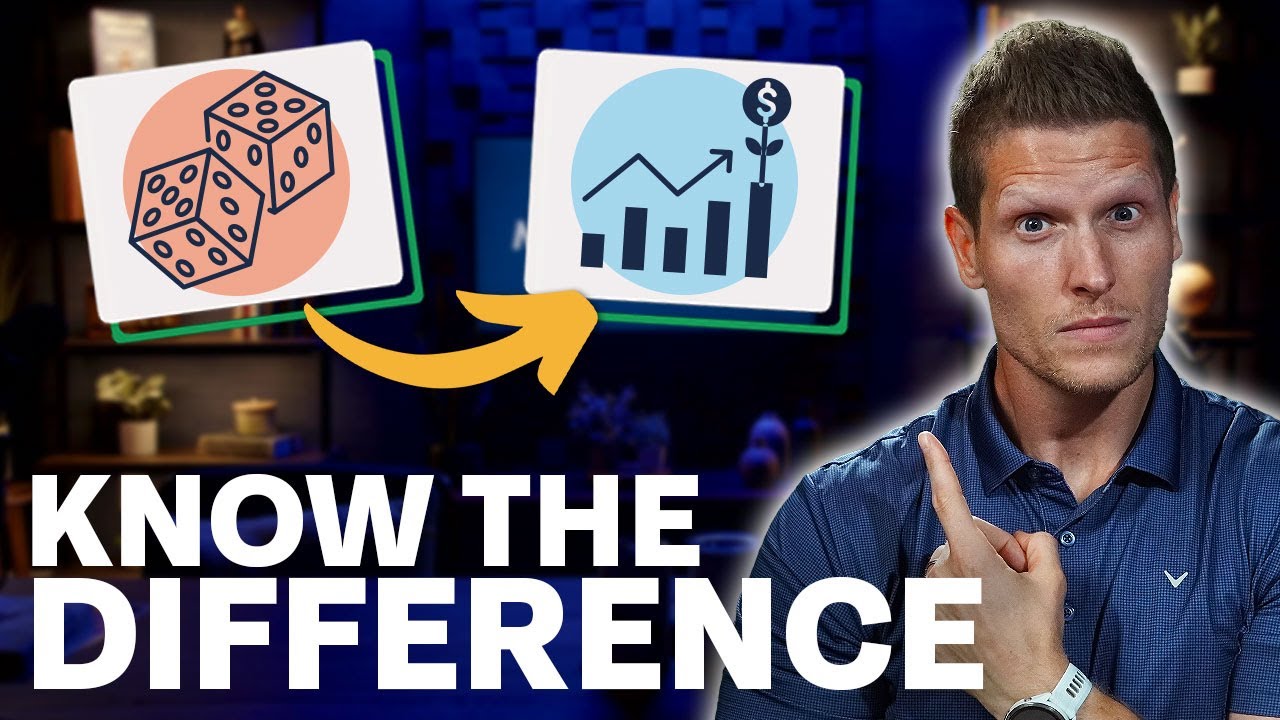All right, Brian, we’ve talked about education being risky, but it may be worth it. Entrepreneurship is risky, and it may be worth it. Real estate is risky, and it may be worth it. But this next one, I get really excited about because this one is risky. It is certainly risky, but in our opinion, the ROI substantiates that this is something most people should participate in, and it is stock market investing.
Yeah, it is buying liquid available securities and investing over the long term so that you can have your money work harder than you do. Now, this first one, because here’s why it’s risky: many people are worried that the stock market doesn’t always go up, and that’s true. I mean, 2022 was a year where the indexes were down, in some cases, over 20%. That’s scary. If you look at the S&P 500, which represents the largest 500 companies in the United States from the year 2000 all the way to 2023, there have been significant downtimes. The dot-com bubble burst in the early 2000s, the Great Recession of 2008-2009, the fourth quarter of 2018 with a greater than 20% drawdown, and then, of course, there was 2022, which saw an extended period of low market performance. So, it does not always go up; there are volatile periods, and sometimes your monthly account statement doesn’t look great.
Well, and that’s the risk of the S&P 500, the 500 largest US companies. What about the risk of people chasing the hot dot? Many people work at technology companies, and their human capital is tied in with their investment capital. I can tell you firsthand, working with executives back when I was in Atlanta, Lucent was a top-five company, a high flyer in the early 2000s. But now, it’s gone. Anyone who invested in Lucent, not only their human capital but also their investment capital, lost it all when it went under. There are investing traps if you concentrate or take too much risk, even with equities.
The market doesn’t always go down, but it’s easy to get overextended and find yourself in a bad situation. So, why do people do it? I think the number one reason people like to invest in the stock market is that it has been consistent over time. If you look at broad indices, just buying the index, it has offered great returns since 1960. The S&P 500 has annualized just over a 10% return per year since 1960. You don’t have to pick individual stocks or analyze balance sheets. If you just bought the market itself, you would have an annualized return of greater than 10% since 1960 without needing a finance degree or being a specialist.
Another reason people invest is that it’s easy. Instead of trying to beat the market, just invest in the market. You don’t need a lot of knowledge to buy an index fund. That low barrier to entry allows you to automate the process and buy essentially the economy, capturing the innovation, technology, and the ever-evolving human experience. Being in the market is easy, and, in our opinion, the easiest path to wealth.
We conducted an annual survey of our millionaire Money Guy clients and family, asking about their characteristics and how they got to where they are. Interestingly, 69% of our respondents, seven out of ten, from our most recent 2023 survey, said, “Hey, I’m just a saver and investor. I take a little bit of my earned income today and invest it to put it to work for me so that I can have a great big beautiful tomorrow.” It’s not the entrepreneurs, senior executives, or super-talented virtuosos; it’s the everyday millionaires next door who recognize they can put a little bit of their money to work and achieve amazing results over the long term without much effort.
A lot of people may be intrigued and want to know how to do it. What’s the first thing to think about? The first thing would be, just like you said, don’t chase the hot dots. Often, we get caught up in what stock to buy, the top-performing mutual fund, or the next hottest thing. We believe that rather than trying to beat the market, you should just be the market. What matters more than timing the market is time in the market. So, if you can avoid the hot dot and do boring, plain old low-index fund investing, you’re likely setting yourself up for a lot of success.
There’s an interesting clip going around with a popular guru talking about how easy it is to beat the market, but the reality doesn’t support that. According to SPIVA, over the last 10 years, 93.1% of domestic equity funds underperformed the index. Instead of trying to beat the market, just be the market. Being the market is a potentially great opportunity to capture innovation, technology, and the growing economy. Right now, being the market is easier than ever with low-cost index funds, such as the S&P 500 or other indices, or even using a target retirement index fund. You can set it and forget it, building automatic wealth without getting lost in unnecessary complexities.
For people starting down the path of investing, especially in equities, they might wonder which accounts to use. There’s the Roth account, regular retirement account, and after-tax accounts. That’s why we talk about the Financial Order of Operations. It helps you understand not only the different investment accounts, whether tax-free or regular retirement or even after-tax, but also guides you through essential steps like having enough cash, building emergency reserves, getting free money from your employer, paying off high-interest debt, and taking advantage of other free resources we provide. Don’t stop at the food; we have an entire library of free resources to accelerate and maximize your journey to success.













